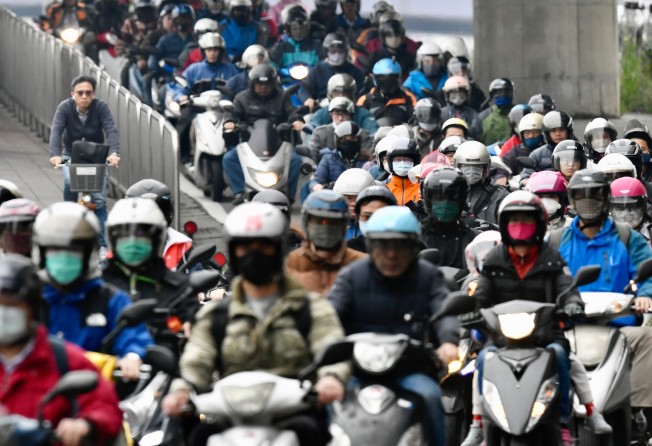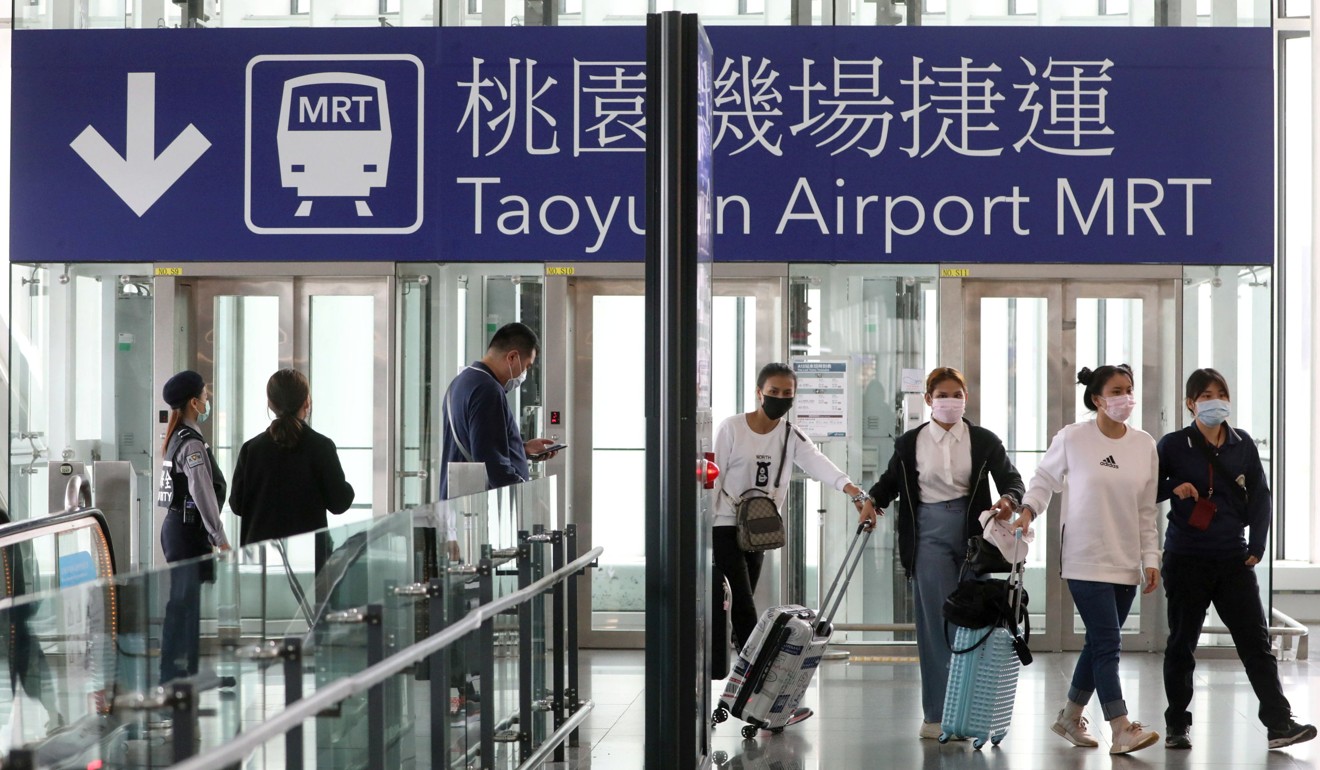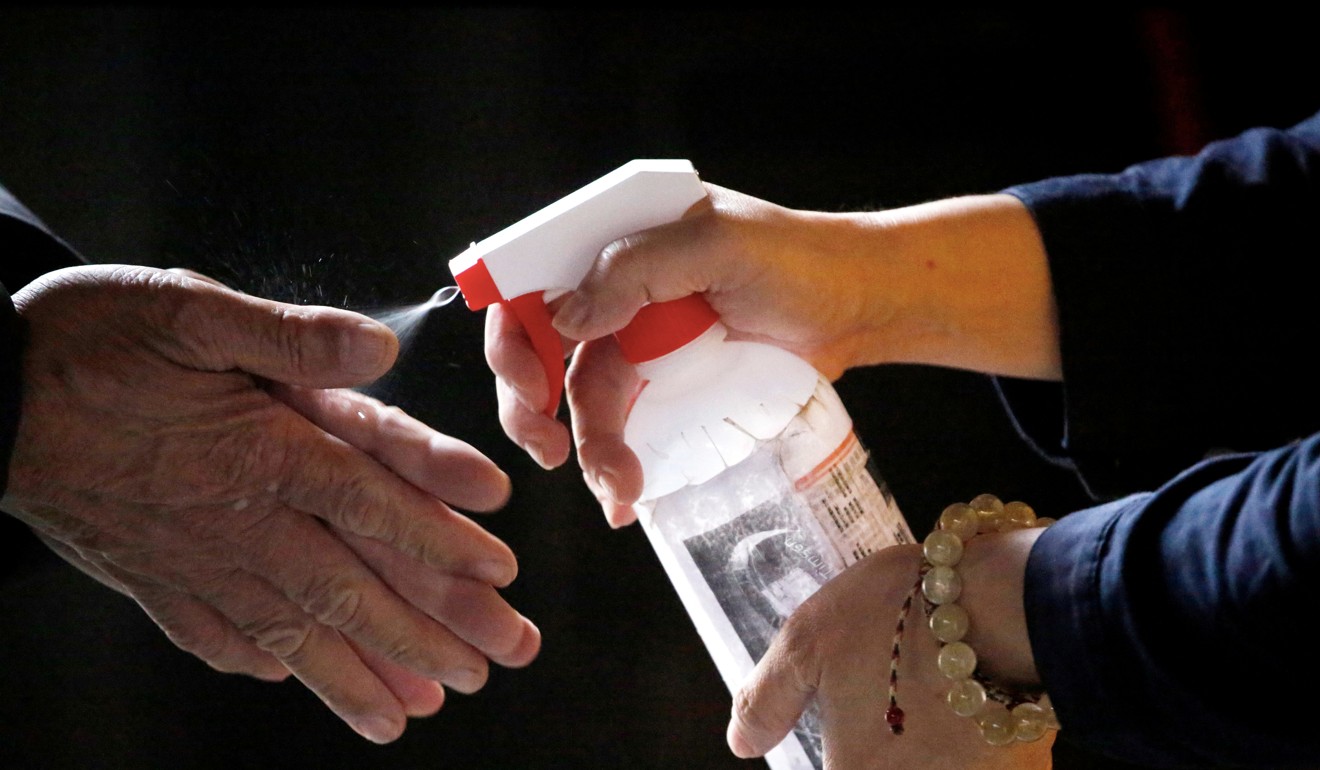Coronavirus: Can Taiwan repeat its success in controlling Covid-19, with new infections from US and Europe on the way?
- Fast response, transparency and efficacy have been credited for island’s success in controlling the disease locally so far, experts say
- Taiwan will be tested in the weeks to come as Taiwanese return home from Europe and North America, where case numbers are rising

Taiwan’s initial success at controlling the spread of deadly coronavirus infections on the island has won it global recognition.
But with scores of new infections and deaths being reported daily in the popular Taiwanese tourist destinations of Europe and the US, it remains to be seen whether the island’s efforts to check the disease will remain as effective as when the virus first spread from the mainland Chinese city of Wuhan, experts say.
With half a million Taiwanese working on the mainland and a million people from the mainland visiting the self-governed island per year, some health experts had predicted that Taiwan would be the hardest hit locality when Covid-19 was first reported in Wuhan, the capital of central China’s Hubei province, which is less than two hours away from Taipei by air.
As of the weekend, Taiwan had reported close to 300 confirmed cases and two deaths, compared with the mainland’s 3,300 deaths and more than 81,000 cases, according to Taiwan’s Central Epidemic Command Centre (CECC). By comparison, Italy has had more than 10,000 deaths and 92,000 cases, the US 2,500 deaths and 122,000 cases and Spain almost 6,000 deaths and 73,000 cases.
Fast response, transparency and efficacy have been credited for the success in controlling the disease locally, experts said.
“We started our response mechanism quite fast and quite earlier,” said Taiwan health minister Chen Shih-chung, who heads the CECC, a unit set up on January 20.
Taiwan first learned of the then-unidentified severe respiratory disease in Wuhan on December 17, Chen said. The island’s Centres for Disease Control contacted mainland authorities and the World Health Organisation about the possibility of human-to-human transmission on December 31, he said.
But when neither group responded helpfully, the island started to require inbound passengers and crew members from Wuhan flights to undergo health checks, Chen said.
Taiwan later asked for and received permission to send two experts to Wuhan to enhance their understanding of the virus, Chen said. Upon their return, the island announced on January 15 that human-to-human transmission of the pathogen was possible and cautioned residents to be on high alert about the health risks it posed.
Taiwan set up a fast response mechanism that helped it track down its first positive case in January, Chen said.
“If we started our response mechanism a little later, it would be much more difficult for us to keep the outbreak at bay, given that the virus is able to spread at a very fast rate,” he said.
In the wake of Wuhan’s lockdown on January 23, Taiwan began that month to monitor all individuals who had travelled to Wuhan within 14 days and had a fever or upper respiratory tract infections, according to the CECC.
Taiwan started imposing border controls as early as January 25, closing access to visitors from mainland China, Hong Kong and Macau. In the days before the ban, it had prohibited travel agencies from organising sightseeing trips to the mainland.

CECC said integrating the national health insurance database with the immigration and customs database created analytical data that helped authorities monitor the travel history and health symptoms of incoming travellers.
“Through our cloud-base health care information system, we are able to trace the travel history or contact history of the travellers, thereby bringing down the risk of the spread of infection at both the airports and clinics or hospitals in Taiwan,” the CECC said.
Taiwan has introduced Quick Response code scanning and online reporting of travel records and health symptoms to allow it to assess the risk of travellers infecting others, based on the origin of their flights and 14-day travel histories. Heavy fines of up to NT$1 million (US$33,000) would be imposed for those who break the 14-day quarantine regulations.
“The introduction of the face mask rationing system has also helped address public concern over the supply of protective masks” that has persisted in many other countries, CECC said.
The rationing system allows each Taiwanese citizen to buy three masks per week at a cost of just NT$15, using a national health insurance ID card. The system was recently extended to online purchases to save people from having to line up for masks.
At the same time, the Taiwanese government has also recruited companies and organisations, including the military and prison authorities, to produce masks to ensure adequate supply, CECC said.
Experts, however, note that while Taiwan has prevailed in controlling virus transmissions that began on the mainland, it remains to be seen whether it can successfully handle a second wave of transmissions expected to come mainly from Europe and the US, where thousands of cases and hundreds of deaths have been reported.
Chan Chang-chuan, dean of the College of Public Health at National Taiwan University, said that in light of the painful lessons learned from the 2003 severe acute respiratory syndrome, or Sars, epidemic, Taiwan remains suspicious about the accuracy and timeliness of epidemic information from mainland China.

For that reason, Taiwan “took the precaution measures, including health inspection and border control on travellers from China”, Chan said.
But with the number of infections expected to grow worldwide and many Taiwanese returning home from Europe and North America, Taiwan will be tested in the weeks to come as it tries to check the anticipated second wave of the outbreak, Chan said.